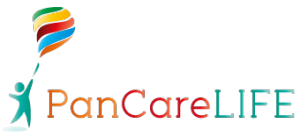Late consequences
The prognosis of pediatric cancer patients has improved significantly in recent decades. At our workplace, the success rate of treatment reaches over 80% in patients with cancer or leukemia. A similar result is reported by centers for the treatment of childhood malignancies in developed European countries. Due to the improving prognosis, the number of survivors is increasing, who may experience late effects of anti-cancer treatment in adulthood.
What are the late consequences?
The late consequences are various health complications that can arise due to cancer treatment, in the long term years to decades after treatment. Late effects can occur not only after chemotherapy, but also after radiation or surgery performed in cancer treatment. Consequences after treatment can affect more tissues and organs.
Will our child have the late effects of treatment?
The onset and development of late effects depend on the patient's age, the type of malignancy, the location of the cancer, and the clinical stage of the disease. The method of oncological treatment, the extent of irradiation, the types of cytostatics, their dosage and the duration of chemotherapy, but also the individual sensitivity of each individual also play an important role in the issue of late effects. Late effects can develop from acute health complications during treatment, usually occurring over a longer period of time as a manifestation of late toxicity of cancer therapy.
What specific health complications can the late consequences present?
Patients may suffer from a combination of late effects - typically organ failure, which has been toxic to cancer treatment (hearing impairment, decreased cardiac function and physical performance, respiratory impairment, renal impairment, fertility impairment, etc.). Patients after successful oncological treatment may have an increased risk of developing another cancer, so-called secondary malignancy. A patient after childhood cancer treatment should be monitored for life.
 In 2013, our clinic joined the European the PanCareLIFE project, whose aim is to assess the individual disposition for the risk of late consequences. The output of this study should be to obtain additional valuable information for still more effective monitoring of our cured patients, but also finding possible ways to prevent some late consequences in the future.
In 2013, our clinic joined the European the PanCareLIFE project, whose aim is to assess the individual disposition for the risk of late consequences. The output of this study should be to obtain additional valuable information for still more effective monitoring of our cured patients, but also finding possible ways to prevent some late consequences in the future.

